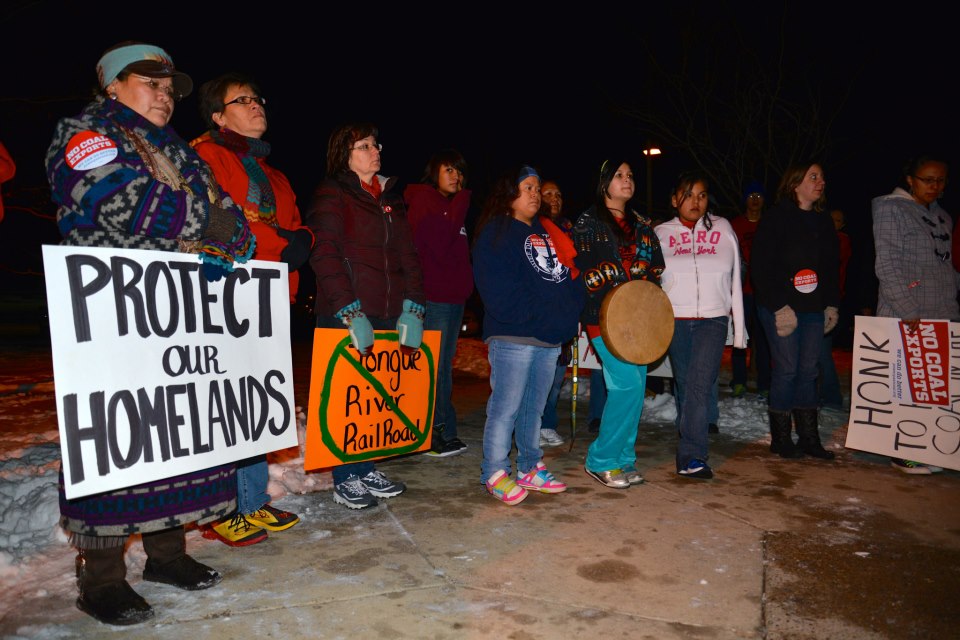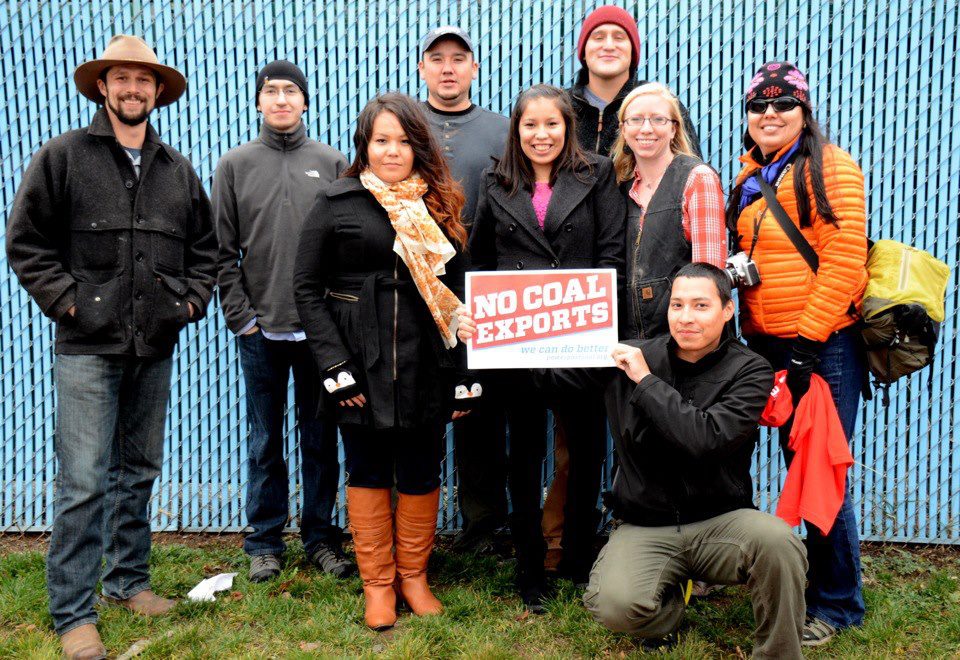Let’s start this victory column with a staggering number: For years Arch Coal had its eyes set on mining upwards of 1.3 billion tons of coal from Montana’s Otter Creek coal reserves - a move that would create the largest new coal strip mine in the US. The company had hoped to export it through Northwest ports such as the Millennium Bulk Terminals project proposed on the beautiful Columbia River in Longview, Washington.
But last week - after several years of tireless, amazing work by ranchers, farmers, tribal leaders, and community advocates - Arch Coal announced it will pull its applications for the proposed project.
While this long-awaited victory is the latest sign of the tailspin the US coal industry is facing, it’s also the latest demonstration of powerful community opposition winning against destructive energy projects. Thanks to the sacrifice and hard work of these advocates, more than one billion tons of coal and carbon will stay in the ground, Montana’s beautiful Otter Creek country will be spared from the ravages of surface mining, and local tribes and ranchers can continue their way of life. And thanks to the success of all those across the US who are moving this country beyond coal, it’s less likely that the coal industry will be back to make a grab for this place any time soon.
The Otter Creek mine would have impacted the Northern Cheyenne Tribe, which has been pressured to open up their tribal lands to coal mining for decades. Tribal members formed their own community organization (ecoCheyenne) to fight this project. And so the Otter Creek project saw opposition for years from local landowners and ecoCheyenne leaders. This win against Arch Coal is due in no small part to their success keeping the project at bay in the coalfields.

"This is a major victory for our homelands, the people and future generations,” said Vanessa Braided Hair, Northern Cheyenne and co-founder of ecoCheyenne. “Arch Coal's permanent removal of their permit application means there is hope -- hope for our people and our Cheyenne way of life. At this time, with deep appreciation and gratitude we reflect on all the hard work and prayers for our homelands and Cheyenne people."
All along, speaking out against the project opened up the local landowners and ecoCheyenne leaders to personal challenges - standing up against big business interests isn’t always popular. But they remained strong, and they are such an inspiration to me, and to activists worldwide.
This victory also surely means the end of the Tongue River Railroad, a connected project that would have allowed the Otter Creek coal reserves to be carried to market and which also faced opposition all along its route. During public hearings for the Tongue River Railroad last summer run by the Surface Transportation Board, the agency saw record breaking levels public participation, dominated by voices who opposed it, right in the heart of coal country. This is an important year for public input on the Millennium Bulk Terminals coal export proposal on the Columbia River, which Arch Coal still has its eyes on. I am hopeful that once again we’ll see allies from Montana and around the region continue to stand up to oppose harmful mining and export projects and continue the momentum from this win.
For now, saving Otter Creek is a big, important victory that was decades in the making. To everyone who made it possible - thank you.
